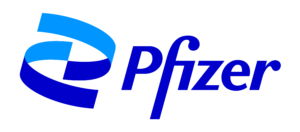Q&A with Pfizer’s Mikael Dolsten
Q&A with Pfizer’s Mikael Dolsten
By Christiane Truelove • [email protected]
Med Ad News’ 2021 Company of the Year Pfizer has led the global war against the COVID-19 pandemic with the vaccine Comirnaty in partnership with BioNTech. To find out about some of the other significant products and pipeline assets in Pfizer’s arsenal, Med Ad News talked to Mikael Dolsten, M.D., Ph.D., Chief Scientific Officer and President, Worldwide Research, Development and Medical.
Med Ad News: Besides the creation of the COVID-19 vaccine Comirnaty, what other recent R&D successes do you believe are particularly noteworthy for Pfizer?
Mikael Dolsten: I’ve never felt more confident about our pipeline. Even beyond the COVID-19 vaccine and our efforts to advance multiple investigational therapeutic options, we’ve continued great momentum across our pipeline.
The extraordinary work done by our vaccine team was not a matter of chance, but a result of the 10-year journey we took at Pfizer to dramatically turn around our R&D organization. Over the last decade, we’ve been taking a hard look at our productivity, sharpening our focus, and implementing gradual changes across multiple dimensions.
 From our deep understanding of biology, doubling down on exciting new modalities, and the efforts to empower our scientists for critical decision-making on their programs, our pipeline reflects the scientific opportunity partly brought about by the changes we’ve made.
From our deep understanding of biology, doubling down on exciting new modalities, and the efforts to empower our scientists for critical decision-making on their programs, our pipeline reflects the scientific opportunity partly brought about by the changes we’ve made.
Our industry-leading clinical success rates continue to drive our robust portfolio. We have achieved an end-to-end clinical success rate (21 percent) > 2X peer median and our Ph2 success rate more than doubled from 22 percent in 2018 to 52 percent in 2020 (based on a five-year rolling average, with Pfizer’s five-year period ending in 2020)
I want to highlight that we’ve had significant progress in starting multiple studies this year and achieved several proof of concepts including:
• After very promising efficacy data in a Phase II study, we’ve started Phase III studies for RSV maternal and adult which is a disease with major burden without prevention and very limited treatment options in both newborn infants and adults.
• Started a Phase III study for giroctocogene fitelparvovec (PF-07055480) Gene Therapy, coagulation factor VIII (F8) Hemophilia A. Pfizer has three Phase III GTx programs – hemophilia A and B, and Duchenne Muscular Dystrophy.
• Progressed Phase III studies of our mAB marstacimab for hemophilia A and B.
• In oncology, started Phase III for sasanlimab (PF-06801591) + Bacillus Calmette-Guerin (BCG) for Non-Muscle-Invasive Bladder Cancer.
• Had important data readouts from our JAK portfolio
• Building on our pioneering legacy in breast cancer with three next-generation CDK inhibitors (CD 2/4/6; CDK2-selective; CDK4-selective) that seek to expand CDK inhibition as a backbone therapy in HR+ disease.
• Made strides to expand our oncology portfolio through our recent collaboration with Arvinas and acquisition of Trillium.
This is only a snapshot of the potential of our work. We have multiple ongoing programs in gene therapy and rare disease, including our ROBO2 as well as our vaccine research in c. Difficile. Looking forward and through the end of 2022, if things go as planned, we could deliver a potential wide-ranging slate of more than ten approvals, more than twenty pivotal readouts, and more than fifteen key proof-of-concepts are on the docket for the next eighteen months.
Med Ad News: What is the importance of the collaboration between AbbVie, Biogen, and Pfizer to create the resource for rare protein-coding genetic variants? What type of impact do you expect it will have on pharma company pipelines?
Mikael Dolsten: Genebass came out of a desire for Pfizer, AbbVie and Biogen to more easily access and use that data across our companies. Initially, each company had a company specific Genebass portal where we could look up new targets for our diseases of interest or look at what diseases were associated with genes of interest.
The UK Biobank has health-related data available for all its participants, including de-identified medical records and imaging data, as well as blood and other biological samples. That helps them to link genetic variation with biology and disease.
After sequencing the exomes of 300,000 biobank participants, we are now fulfilling our promise to make all sequence data available to other researchers. This dataset is the world’s largest browsable resource linking rare protein-coding genetic variants to human health and disease and will help scientists worldwide to explore and utilize the data for their respective areas of interest.
Our hope is that this information will allow researchers to better understand the human genome and identify therapeutic strategies that can specifically target the underlying causes of disease.
We decided to make Genebass publicly available because we did want the resource to be available to anyone to be able to use and look at. It’s an enormous volume of data, and so the more people in the broad research community who look at it, more and more interesting findings will be seen.
Med Ad News: Pfizer has traditionally focused on infectious disease research as well as vaccines research; has COVID research opened new areas in that regard that could be applied to other infectious diseases?
Mikael Dolsten: The swift delivery of the world’s first mRNA-based vaccine made the scientific opportunity of mRNA technology clear. COVID-19 vaccines are complex biologic products, and their manufacturing requires specialized experience, expertise, and equipment. Pfizer has emerged as a leader in mRNA development, and we are exploring a wide range of potential opportunities for the technology.
Our strategy to advance and unlock the full potential of mRNA is focused in three core areas. We are strengthening the core COVID-19 vaccine franchise, growing an infectious disease vaccine pipeline, and exploring therapeutic areas like rare disease and oncology with the strongest potential. We recently started first-in-human studies of an mRNA vaccine against flu.
I think it’s also important to discuss the broader lessons COVID-19 has given us in HOW we do things – from our design of clinical studies, to engagement with regulators, and even deeper collaborations. The lessons of COVID will be felt across almost every dimension of our work.
Med Ad News: Pfizer has continued to expand the company’s oncology focus. What are particular areas – whether in new mechanisms of action, new targets to attack, or products or new indications – that you would like to highlight?
Mikael Dolsten: We are building on our pioneering legacy in breast cancer with three next-generation CDK inhibitors (CDK 2/4/6; CDK2-selective; CKD4-selective) that seek to expand CDK inhibition as backbone therapy in HR+ disease. Within the past 2 months, we have invested in two new strategic business development opportunities to further drive this growth in Oncology. These opportunities are well aligned with the strategic priorities by which we evaluate business development, with a focus on the potential to deliver breakthrough medicines and enhance our long-term growth prospects as we look to strengthen and add durability to our growth profile. We see that as a unique opportunity, both in the cell cycle and the hormone dependency pathway, to bring innovation and new horizons into early to late-stage breast cancer treatment, and combination potential with Ibrance and our next generation CDK portfolio.
Arvinas/ARV-471
• We established a strategic global collaboration with Arvinas for ARV-471, an oral PROTAC inhibitor currently in Phase 2 clinical development for metastatic ER+/HER2- breast cancer.
• ARV-471 represents breakthrough drug design technology: PROTAC protein degraders efficiently eliminate rather than inhibit disease-causing proteins.
• Utilizing our rich heritage and experience in breast cancer research and commercial capabilities, we will be working with Arvinas on a comprehensive development program across lines of therapy, spanning early and metastatic breast cancer, including combinations with Ibrance and with our next-gen CDK portfolio.
• ARV-471 is being evaluated as a treatment for metastatic breast cancer in a Phase I dose escalation study, a Phase Ib combination study with Ibrance, and a Phase II monotherapy dose expansion study.
• Starting in 2022, we expect to initiate Phase III studies across lines of therapy in metastatic breast cancer, including in combination with Ibrance, followed by pivotal studies in the early breast cancer setting.
Trillium Acquisition/TTI-622 and TTI-621
• Pfizer and Trillium have entered into a definitive agreement under which Pfizer will acquire Trillium, a clinical-stage immuno-oncology company developing innovative therapies for the treatment of cancer.
• Trillium’s portfolio includes biologics that are designed to enhance the ability of patients’ innate immune system to detect and destroy cancer cells.
• TTI-622 and TTI-621 and the SIRP-alpha/CD47 class have the potential to be foundational in immunotherapy of hematological malignancies, analogous to the role PD-1/PD-L1 play in solid tumors.
• More than 1 million people worldwide were diagnosed with a blood cancer in 2020, representing almost 6 percent of all cancer diagnoses globally. In 2020, more than 700,000 people worldwide died from a blood cancer.
• TTI-622 and TTI-621 seem particularly well-suited for combination use with other agents including our own CD3/BCMA bi-specific elranatamab, now in development for multiple myeloma.
• Upon closing, we plan to accelerate the clinical development of SIRPα fusion proteins as a potential new scientific breakthrough and explore combinations within our own portfolio and with innovative next-generation medicines for hematological malignancies.
About Mikael Dolsten
Mikael Dolsten concentrates on advancing Pfizer’s scientific breakthrough leadership in small-molecule medicines, biotherapeutics, gene therapies and vaccines. Dr. Dolsten is a member of the Executive Leadership Team and Pfizer’s Portfolio Strategy and Investment Committee, which governs major pipeline investments and strategic end-to-end R&D priorities.
Dr. Dolsten leads Pfizer’s Worldwide Research, Development and Medical (WRDM) organization, which is responsible for the development of all compounds through proof of concept, and provides pharmaceutical sciences, safety and medical support to the entire R&D pipeline and all marketed medicines and vaccines. WRDM comprises every Pfizer research unit, including Oncology, Internal Medicine, Inflammation & Immunology, Vaccines and Rare Disease, and the Centers for Therapeutic Innovation.




